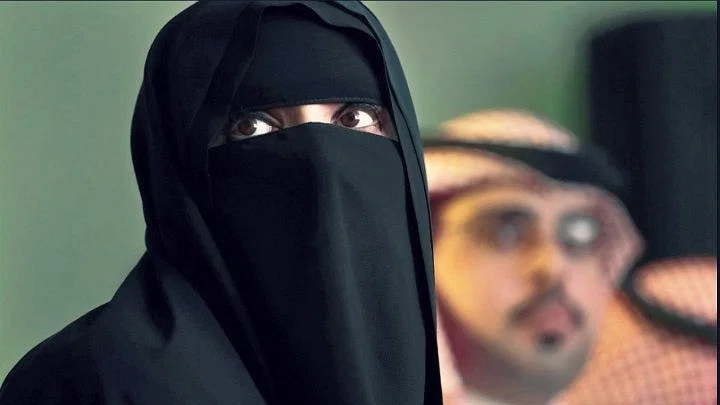The Universal Periodic Review (UPR) is a unique procedure of the United Nations Human Rights Council. It takes place every four years and involves the assessment of the human rights records of all 193 UN Member States on a regular basis.
The UPR presents an opportunity for all countries to declare the steps they have taken to improve the human rights situations in their nations, to resolve challenges to the enjoyment of human rights, and to advocate for equal treatment for all.
During the 45th session in Geneva, Saudi Arabia presented its fourth Universal Periodic Report. The government delegation responded to recommendations and inquiries from different countries on various human rights issues. This was the fourth evaluation after the previous one in 2018.
Crown Prince Mohammed bin Salman has presented himself as a leader who promotes gender equality and is committed to reform. Saudi Arabia’s Vision 2030 commits to empowering women and views them as a valuable asset. However, despite these claims, Saudi Arabia has failed to fulfill several recommendations agreed upon during the 2018 review. They have not aligned with international standards, protected the rights to freedom of expression, association, and peaceful assembly, released human rights defenders and individuals imprisoned for exercising these rights, and addressed the crucial issue of improving and effectively safeguarding women’s rights.
During its third cycle, various recommendations were made regarding women’s rights in Saudi Arabia. However, only a few of them were implemented partially, while many others remained unimplemented. Despite the introduction of certain women’s rights reforms, discrimination against women still exists both in law and practice. While these reforms have positively impacted women’s rights and their freedom of movement, they did not entirely abolish the male guardianship system as recommended.
In June 2018, Saudi Arabia achieved a significant milestone by lifting the ban on women driving. Previously, women in Saudi Arabia were not allowed to drive and had to rely on male relatives for transportation. This change was recognized as a significant victory for women’s rights and a positive step towards granting women more independence.
In August 2019, Saudi authorities enacted additional reforms to the male guardianship system. These reforms granted women over 21 the right to obtain passports and travel without needing permission from a male guardian. Further, women over 18 also gained the authority to take care of matters like birth registration and death records.
However, although there have been advancements, the guardianship system persists in various aspects of women’s lives. This system, which is influenced by legal requirements and cultural customs, creates a dependency for Saudi women on their male guardians. Fathers, husbands, brothers, or even sons possess the authority to make crucial decisions on behalf of women throughout their entire lives.
In March 2022, Saudi Arabia passed its first Personal Status Law (PSL). The law introduced positive reforms, such as setting a minimum age for marriage. However, it maintains a system of gender-based discrimination in family life. Under the PSL, women still require the consent of their male legal guardian to get married. During marriage, they are expected to obey their husbands, and their right to financial support is contingent on their submission. Additionally, the law fails to criminalize marital rape and allows men to initiate divorce unconditionally, while women face legal, financial, and practical barriers when seeking dissolution of marriage. The PSL also grants men a larger share of inheritance assets than women. Therefore, despite some reforms, women and girls in Saudi Arabia still face inadequate protection from sexual and various other forms of violence.
More than 50 countries have requested that Saudi Arabia conform its domestic laws with international human rights standards and ratify essential international human rights treaties. Additionally, several countries have suggested that Saudi Arabia should welcome and accept visits from UN special procedures mandate holders. Ten countries have explicitly called for legal reforms regarding women’s rights, advocating for eliminating the male guardianship system. They also urge the repeal of all discriminatory provisions in the 2022 Personal Status Law. Other recommendations include the criminalization of gender-based violence, including marital rape, and an extension of the definition of such violence beyond physical abuse alone. Despite some progress in recent years, there are still significant challenges to ensuring the full protection and rights of women and girls in Saudi Arabia.
Amnesty has compiled and released the third set of recommendations endorsed by Saudi Arabia about women’s rights. Here are a few of them, accompanied by an assessment of the progress made:
| 122.240 Take further measures to guarantee women’s
rights, namely through anti-discrimination legislation (Portugal); Source of position: A/HRC/40/4/Add.1 – Para. 12-13 |
Discrimination against women
Affected persons: – women |
Partly implemented |
| 122.221 Enact legislation to limit the minimum age of marriage for boys and girls and promote a national strategy supporting gender equality through an expanding social protection network for women (Iraq);
Source of position: A/HRC/40/4/Add.1 – Para. 12-13 |
Discrimination against women Affected persons:
– women |
Partly implemented |
| 122.211 Abolish the guardianship system and provide legal equality for women in Saudi legislation (Slovenia); Source of position: A/HRC/40/4/Add.1 – Para. 12-13 | Discrimination against women
Affected persons: – women |
Partly implemented |
| 122.129 Criminalize all forms of violence against
women and implement effective programmes for the protection of victims of these crimes (Spain); Source of position: A/HRC/40/4/Add.1 – Para. 12-13 |
Violence against women Affected persons:
– women |
Not implemented |
| 122.202 Implement further reforms to improve women’s social and economic empowerment, including dismantling the system of male guardianship in law and practice (Australia);
Source of position: A/HRC/40/4/Add.1 – Para. 12-13 |
Gender equality and women’s empowerment
Affected persons: – women |
Not implemented |
| 122.19 Ratify the Optional Protocol to the Convention on the Elimination of All Forms of Discrimination against Women (Croatia);
Source of position: A/HRC/40/4/Add.1 – Para. 8 |
Discrimination against women Affected persons:
– women |
Not implemented |

